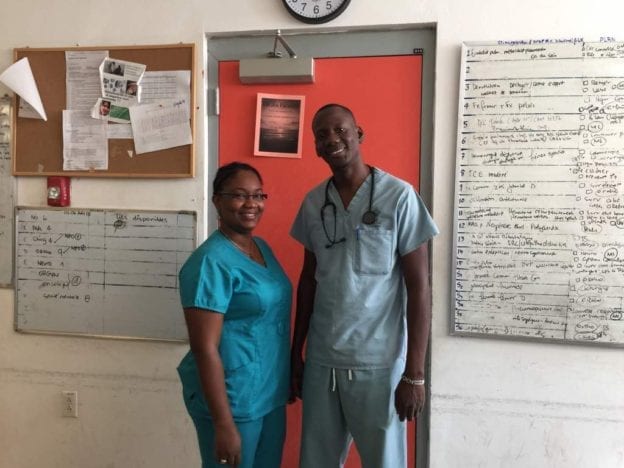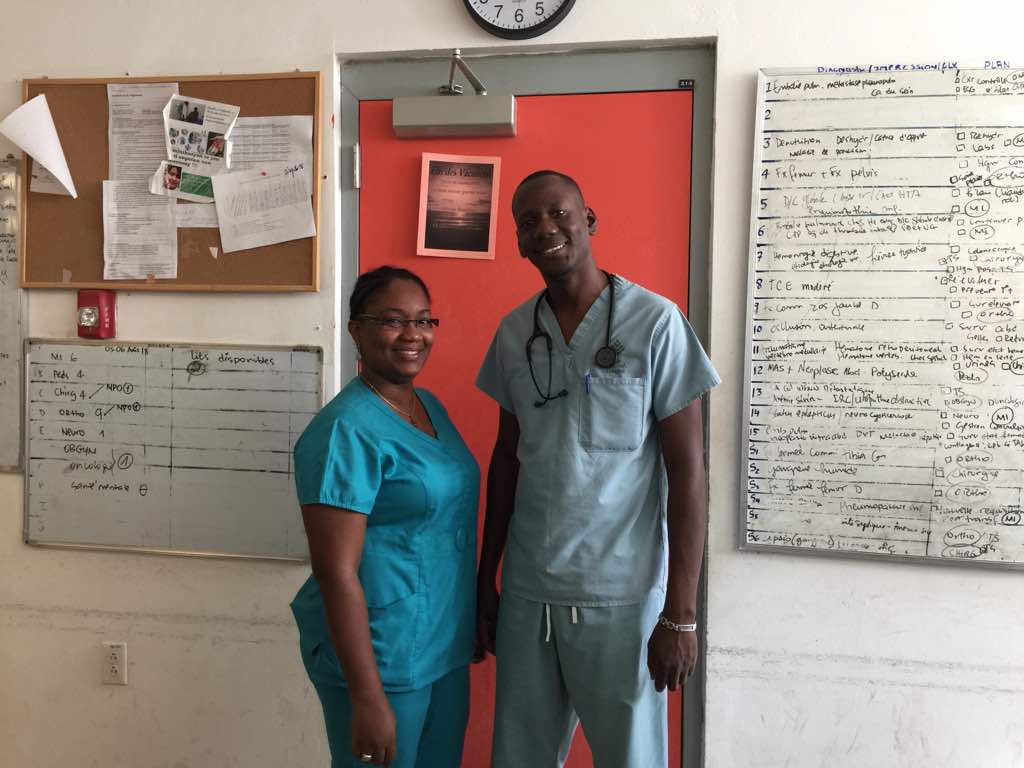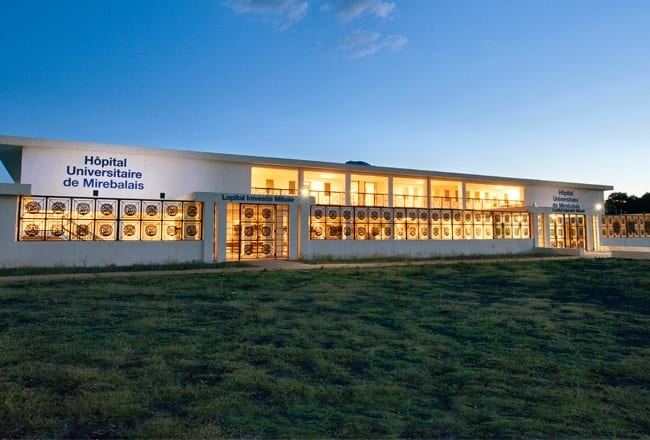Raising Standards in the ER

Emergencies happen.
When they do, we believe that all people, no matter where they live or how much money they have, deserve to be able to receive high-quality emergency medical care.
Since 2014, PIH Canada has been supporting the Emergency Medicine Residency program at University Hospital of Mirebalais, training the next generation of Haitian doctors. We sat down with Dr. Jimmy Plantin and Dr. Faikha Colinet, two of Haiti’s first homegrown emergency medicine physicians, to learn about how they have been working to improve emergency care in Haiti.

Q&A with Dr. Jimmy Plantin
As one of Haiti’s first locally trained emergency medicine (EM) physicians, you see some of the most difficult cases in the country at University Hospital of Mirebalais. What keeps you going?
From the beginning, we knew that it would be difficult and we were prepared to face certain challenges. Every day, we admit cases that are both difficult and complex, and there are several reasons for this: perhaps the patient was not able to come to the hospital any earlier, or perhaps they were not able to receive adequate care due to lack of sanitation, limited resources, or limited access to trained personnel.
This is why we understand the importance of continuing to educate future generations of emergency doctors to meet the great demand in our country for this type of care. Just a few years ago, the majority of emergency cases were given to newly-graduated residents who did not have adequate training in emergency medicine. We will forge ahead in our mission to educate new generations of emergency doctors so that, going forward, the sickest patients are cared for by the most qualified personnel.
Looking back to when you started your residency in 2014, what are you most proud of?
My colleagues and I were very enthusiastic about becoming emergency medicine pioneers. We knew that there was great need and that we would have to make sacrifices, work hard, and learn as much as we could from our instructors, who for the most part were emergency doctors from Canada and the USA. I am particularly proud of what we were able to learn in just three years and the fact that we will be able to teach future Haitian emergency doctors ourselves.

Q&A with Dr. Faikha Colinet
What should people in Canada know about young physicians working in Haiti? What can people here do to support your work?
There are so many patients and people are very sick. We are the busiest service in the hospital, and we are supporting other hospitals in Haiti trying to start EM too, so I think people in Canada could help us with hiring more core faculty to support and help us to teach the future residents. It’s difficult for us to help all the residents and what we want is to be there for everyone. We would also like to benefit from ongoing training in order to help the residents.
For students just starting their EM residency, what would be your words of advice?
Sometimes it can be challenging taking care of a patient with stress. Sometimes parents don’t understand you. But as Dr. Paul Farmer always says, the emergency medicine residency is “the front door” of the hospital, because everyone will come to us and we will be the first ones to see the patient in their worst condition. Then we will see how the patient is getting better in front of us and we will see that same patient saying thank you to us when they are leaving. For me, this is the best pleasure you can have as a doctor.



